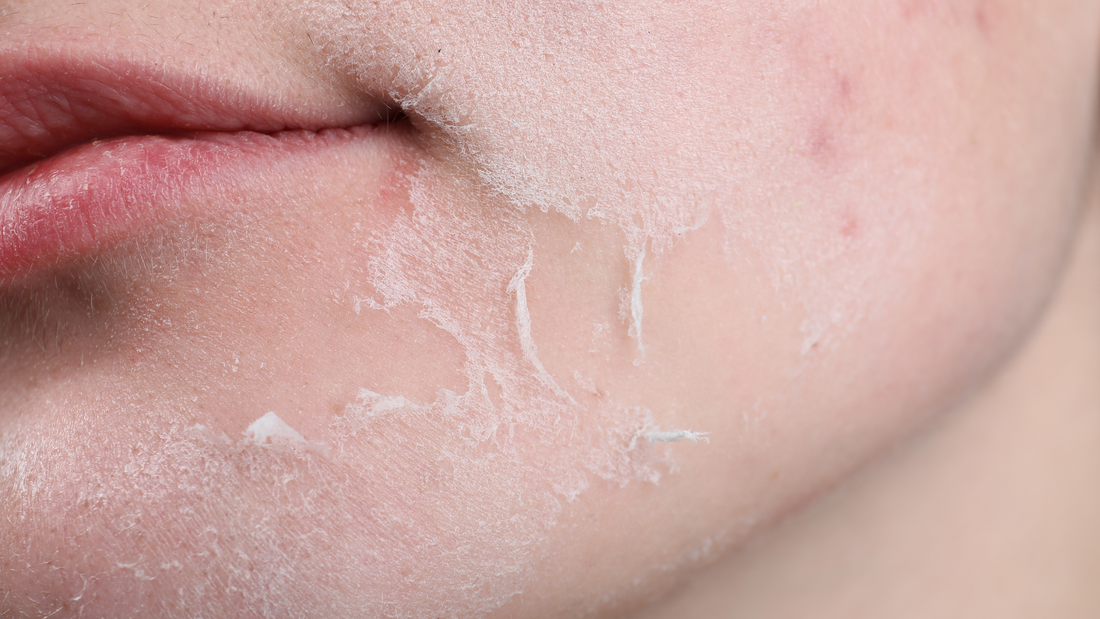
Dermatologist vs. Influencer Advice: How to Tell What’s Really Right for Your Skin
Share
The Allure of Influencer Skincare
There’s something incredibly appealing about watching influencers unbox the latest skincare drops or share their glowing routines. They look polished, confident, and persuasive — and for many, they’re the most accessible source of skincare advice.
But there’s a crucial difference between sharing what works for you and providing evidence-based medical guidance. Influencers aren’t trained to diagnose skin types or conditions. They don’t see the long-term effects of incorrect product use. And they’re often incentivised by sponsorships or affiliate links — meaning their recommendations may be commercially driven, not clinically guided.
A Frontline View: What I See in My Cape Town Practice
In my Cape Town dermatology clinic, I regularly see patients who have followed influencer routines that have left their skin worse off. Here are some common issues I encounter:
-
Over-exfoliation and barrier damage
Clients come in with red, stinging, flaking skin after layering chemical exfoliants and active ingredients like AHAs, BHAs, and retinoids — all because someone online said it was “essential.” -
Pigmentation flare-ups
Especially in melanin-rich skin, certain viral skincare routines can worsen conditions like melasma or post-inflammatory hyperpigmentation, particularly without proper sun protection or professional guidance. -
Acne made worse
Influencers may recommend drying ingredients that strip the skin or clog pores, worsening acne or causing rebound breakouts. Or worse, they recommend “pore vacuums” and DIY extraction — a fast track to scarring. -
Hair and scalp issues
Hair oils, scrubs, and supplements are trending — but they’re not a one-size-fits-all solution. Many of my hair loss patients arrive having delayed proper treatment because they were sold a miracle growth serum by an influencer.
These aren’t isolated cases — they’re daily occurrences. And they often start with good intentions but end in damage that takes months to reverse.
Cape Town Skin Has Specific Needs
Cape Town’s environmental factors are unique. Our UV index is consistently high, even in winter. The dry air, wind exposure, and coastal humidity all influence skin barrier health. Many international influencers don’t live in this climate — which means their routines often don’t translate to our local conditions.
For example, someone in London or New York recommending retinoid-heavy routines without humidity or SPF context can cause skin to become inflamed here in Cape Town. That’s where professional insight makes all the difference.
Red Flags to Look Out For in Influencer Skincare
If you’re browsing skincare content online, keep these red flags in mind:
-
“This product works for everyone.”
There’s no such thing. Skin is highly individual and influenced by age, genetics, environment, and underlying conditions. -
No mention of SPF.
If a routine includes acids, retinoids, or vitamin C — and doesn’t pair them with broad-spectrum sunscreen — that’s a recipe for pigmentation and damage. -
Harsh language like “pore vacuum” or “skin purging.”
These terms often mask irritation, damage, or allergic reactions. Skin isn’t meant to be stripped or shocked into submission. -
Lack of credentials.
A dermatologist studies for over a decade to understand the skin. Influencers often rely on personal anecdotes and trial-and-error — not peer-reviewed science.
When to See a Dermatologist Instead
The moment your skincare stops working — or starts to make things worse — is the moment to pause and seek professional help.
Whether you're struggling with acne, pigmentation, sensitivity, scalp issues, or simply want a skin plan that’s right for your lifestyle and environment, consulting a dermatologist in Cape Town can save you time, money, and stress.
As a dermatologist, I don’t just treat the skin — I read it. I consider your history, skin type, environmental exposure, and goals before prescribing anything. The aim is to work with your biology, not fight against it.
What to Expect from a Dermatology Consultation
Many first-time patients worry that visiting a dermatologist will mean giving up their beloved products or being judged for their routine. That’s never the case here.
I take the time to listen, assess, and build a realistic plan — sometimes incorporating products you already love, but used more strategically. Whether it’s simplifying your skincare or treating complex conditions, it’s a collaborative process. And if needed, we’ll back it up with advanced tools, prescriptions, or in-practice treatments.
My Advice? Be Skin Smart — Not Skin Scared
You don’t need a 10-step routine. You need a 1-on-1 plan that works for you.
Influencer advice can be fun — but when it comes to lasting skin health, trust a professional. Your skin is your largest organ. It deserves more than just trends.
📍Cape Town patients: If your skincare isn’t working — or your skin needs a reset — book a consultation and let’s design a better path forward, together.
🔗 Book Now
📍 28 Brookdale Avenue, Pinelands, Cape Town
